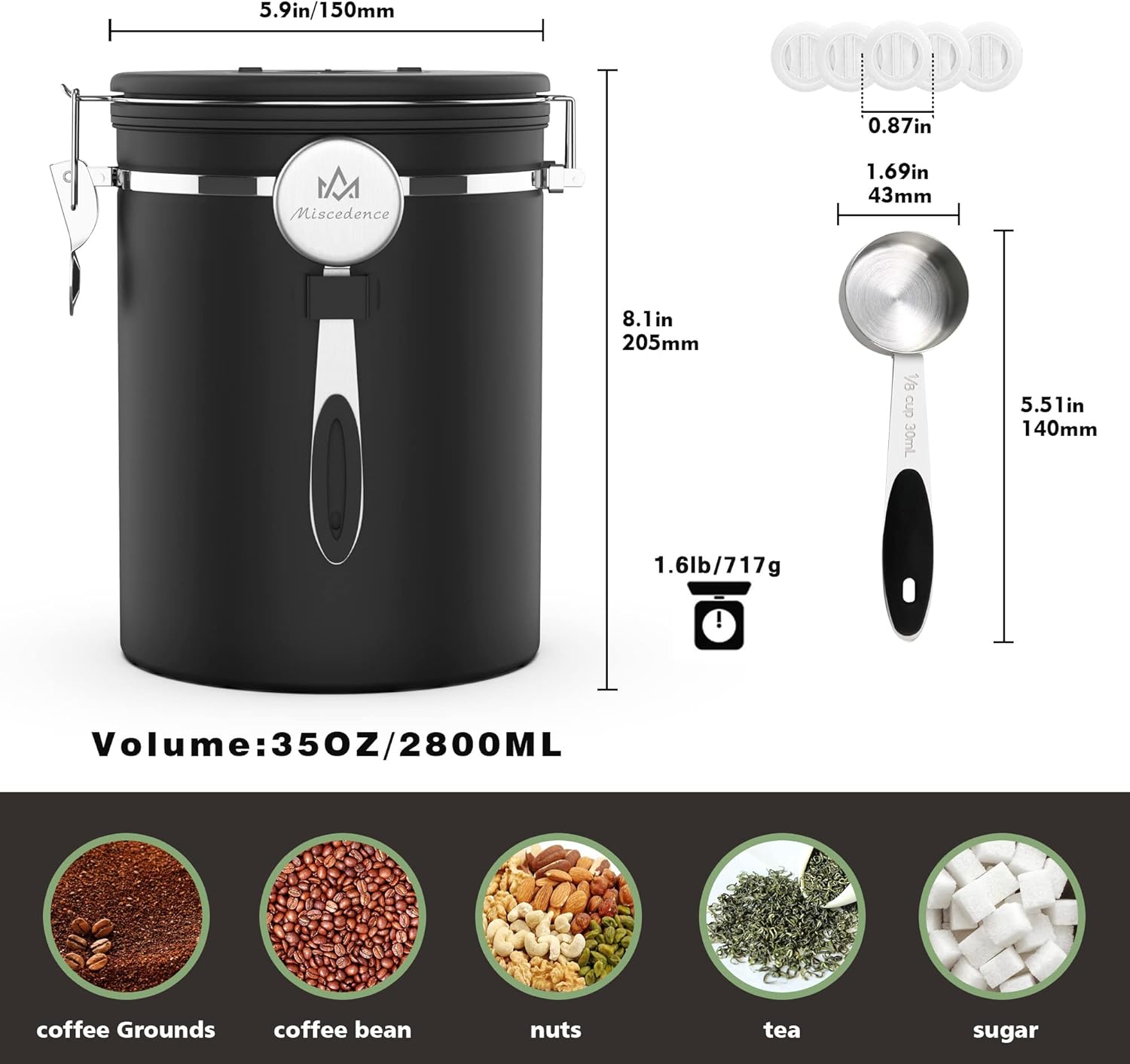
Is Your Pantry Prepared for What’s Ahead?
Supply chain disruptions and potential power grid failures could lead to significant food shortages. Don’t wait until it’s too late—start stocking up on essential items now to ensure your family’s well-being during uncertain times.
Prepare Now: 20 Essential Items You’ll Regret Not Stocking Up On Before the Next Food Shortage Hits
In recent years, we’ve seen how fragile our supply chains can be, with disruptions leading to empty shelves and delayed deliveries. But what if it gets worse? A major concern is the vulnerability of our power grid. A solar flare or other grid failure could knock out power for extended periods, affecting everything from gas pumps to food refrigeration. Without power, food delivery systems would grind to a halt, leading to spoilage and scarcity.
To be prepared for these potential crises, it’s crucial to stock up on key items now. Here are the top 20 essentials you should consider:
1. Grains and Rice
Grains like rice, oats, and quinoa have a long shelf life, providing essential carbohydrates. Calculate how much your household consumes per week, then multiply by the number of weeks in your storage plan. For a 2-year supply, a family of four might need around 200-250 lbs of rice. Store grains in food-grade buckets with oxygen absorbers to maximize shelf life.
2. Canned Vegetables and Fruits
Canned goods offer essential nutrients when fresh produce is unavailable. Estimate how many cans your family consumes weekly. For a 2-year supply, you’ll need around 1,500-2,000 cans per person. Rotate cans to use the oldest first. Learn to can your own produce to avoid preservatives.
3. Dry Beans and Lentils
High in protein and fiber, dry beans and lentils are versatile and have a long shelf life. Calculate your household’s weekly consumption. For a 2-year supply, a family of four might need around 300-400 lbs. Store in airtight containers with oxygen absorbers to ensure longevity. Soak and cook in bulk to save time and fuel.
4. Pasta and Noodles
Pasta is versatile, easy to prepare, and can be stored for long periods. Determine how much pasta your family uses weekly. For a 2-year supply, aim for 200-250 lbs per family of four. Store in airtight containers to protect from pests. Consider vacuum-sealing or storing in mylar bags with oxygen absorbers for longer shelf life.
FRESKO Upgraded , Hands-Free Food Vacuum Sealer without Flipping the Lid, Easy-to-Use Touch Operation with Visual Progress Bar, ETL Certified
5. Canned and Dry Meats
Protein-rich and shelf-stable, canned and dried meats are essential for long-term storage. For a 2-year supply, plan for 1-2 cans per person per week, amounting to roughly 200 cans per person. Learn to preserve your own meats using methods like smoking or dehydrating to reduce reliance on store-bought options.
6. Healthier Cooking Oils
Choose healthier oils like extra virgin olive oil, coconut oil, or avocado oil, which have longer shelf lives and more health benefits. Calculate how much oil your household uses monthly. For a 2-year supply, a family of four might need around 20-30 liters. Store oils in cool, dark places in dark glass bottles to prevent spoilage. Rotate your stock to use the oldest first.
An accessible and expert guide to the age-old craft of preparing meat and fish products by home curing, salting and drying.
7. Nut Butters and Seeds
Rich in protein and healthy fats, nut butters and seeds are essential for energy. Without a freezer, store nuts and seeds in airtight containers in the coolest area of your home. Estimate your family’s weekly consumption and multiply it for a 2-year supply. A family of four might need around 100-150 lbs. Rotate regularly to ensure freshness.
8. Shelf-Stable Milk Alternatives
Milk alternatives like powdered milk, almond milk, or oat milk are essential for those who need milk but can’t store fresh dairy. Calculate your family’s milk consumption. For a 2-year supply, consider 200-300 liters of shelf-stable milk or powdered milk equivalent. Store in a cool, dark place and rotate regularly. Learn to make your own milk alternatives from stored nuts or grains.
Mason Jar Vacuum Sealer, Electric Mason Genie Vacuum Sealer Kit with Wide & Regular Mouth Mason lids, 2024 Upgrade Smart Vacuum Sealing for Jars with Can Opener, Regular and Wide Mouth Mason Jar L...
9. Spices and Condiments
Spices and condiments add flavor and variety to meals, essential for morale. Stock up on a wide range of spices and condiments, keeping them in airtight containers. Calculate usage based on your cooking habits. For a 2-year supply, aim for around 10-15 lbs per spice. Learn to grow and dry your own herbs for sustainability.
10. Flour, Baking Essentials, and Sourdough Starter
Baking essentials are crucial for creating food from scratch; a sourdough starter is invaluable. Estimate how much flour and sugar your household uses. For a 2-year supply, a family of four might need around 200-300 lbs of flour. Create a sourdough starter and keep it alive by feeding it regularly. Learn to bake without commercial yeast.
11. Dried Fruits
Dried fruits provide essential vitamins and are a great snack option. Stock up on a variety of dried fruits, calculating usage based on snacks and baking. For a 2-year supply, aim for around 100-150 lbs. Store in airtight containers, and consider dehydrating your own fruits to avoid additives.
12. Honey and Syrups
Natural sweeteners with long shelf lives, honey and syrups are crucial for preserving and cooking. Calculate your household’s use of sweeteners. For a 2-year supply, aim for 10-20 liters of honey or syrup. Store in tightly sealed containers in a cool, dark place. Honey can crystallize over time but can be restored by gently warming.
HONGBAKE Baking Sheet Pan Set, Cookie Sheets for Oven, Nonstick Half/Quarter/Jelly Roll Pans with Diamond Texture Pattern, Heavy Duty Cookie Tray
13. Nuts and Seeds
Nuts and seeds are nutrient-rich and provide essential fats and protein. Estimate your household’s weekly consumption of nuts and seeds. For a 2-year supply, store around 100-150 lbs in airtight containers, and keep them in the coolest area of your home. Rotate stock regularly to ensure freshness.
14. Canned Soups, Stews, and Home-Canned Goods
Home-canned goods are healthier and free from preservatives, crucial for emergencies. Stock up on a mix of store-bought and home-canned goods. For a 2-year supply, aim for 200-300 cans per person. Learn the basics of home canning to preserve your own soups, stews, and vegetables.
Canning Pot-Canning supplies starter kit, Stainless Steel Canning Tool Kit Water bath canner with rack for canning.
15. Coffee and Tea
Coffee and tea are essential comfort items, providing a sense of normalcy. Calculate your household’s daily coffee and tea consumption. For a 2-year supply, store approximately 14.6 kg (32 lbs) of coffee and 2.92 kg (6.4 lbs) of tea per person. Keep these items in airtight containers, away from light and moisture, and rotate your stock regularly.
Veken Tea & Coffee Canister ,and Scoop for Grounds Coffee, Beans, Flour, Cereal, Sugar, 22OZ, Black
16. Freeze-Dried Meals
Freeze-dried meals are convenient, lightweight, and have a long shelf life, making them perfect for emergencies. Stock up on a variety of freeze-dried meals, ensuring you have enough for each family member. For a 2-year supply, aim for 200-300 meals per person. Store in a cool, dry place, and consider investing in a water filtration system to prepare these meals if water is scarce. Learn how to do your own freeze drying HERE
17. Bottled Water
Water is the most critical item for survival, needed for drinking, cooking, and sanitation. Calculate your household’s water needs—at least a gallon per person per day. For a 2-year supply, store 730 gallons per person. Use food-grade water containers and store them in a cool, dark place. Consider additional water purification methods like filters or tablets.
18. Vinegar and Baking Soda
Vinegar and baking soda are versatile, useful for cooking, cleaning, and even some medical needs. Stock up on white vinegar, apple cider vinegar, and baking soda. For a 2-year supply, aim for 10-15 gallons of vinegar and 50-100 lbs of baking soda. Store in tightly sealed containers, and rotate stock regularly.
19. Alcohol (For Cooking and Sanitizing)
Alcohol is essential for both cooking and sanitizing during emergencies. Store a variety of alcohol types, including rubbing alcohol for sanitizing and liquor for cooking or medicinal purposes. For a 2-year supply, consider 20-30 liters of each type. Keep them in a cool, dark place, and ensure bottles are tightly sealed. Be mindful of fire safety when storing alcohol.
20. Pet Food
Pets are part of the family, so their needs must also be considered during emergencies. Calculate your pet’s daily food intake and multiply it by the number of days in your storage plan. For a 2-year supply, store 300-400 lbs of pet food per pet. Use airtight containers to keep food fresh, and rotate stock regularly. Consider stocking up on any necessary medications or supplements for your pets as well.
Grains and Rice
Grains like rice, oats, and quinoa have a long shelf life, providing essential carbohydrates.
Supply: 200-250 lbs per family of four (2 years)
Storage: Airtight containers with oxygen absorbers, rotate regularly.
Canned Vegetables and Fruits
Canned goods offer essential nutrients when fresh produce is unavailable.
Supply: 1,500-2,000 cans per person (2 years)
Storage: Rotate stock regularly, choose low-sodium options.
Dry Beans and Lentils
High in protein and fiber, dry beans and lentils are versatile and have a long shelf life.
Supply: 300-400 lbs per family of four (2 years)
Storage: Airtight containers with desiccants, soak before cooking.
Pasta and Noodles
Pasta is versatile, easy to prepare, and can be stored for long periods.
Supply: 200-250 lbs per family of four (2 years)
Storage: Vacuum-sealed or in mylar bags with oxygen absorbers.
Canned and Dry Meats
Protein-rich and shelf-stable, canned and dried meats are essential for long-term storage.
Supply: 200 cans per person (2 years)
Storage: Cool, dark place; consider preserving your own meats.
Healthier Cooking Oils
Choose healthier oils like olive, coconut, and avocado oil for cooking and baking.
Supply: 20-30 liters per family of four (2 years)
Storage: Dark glass bottles, cool, dark place, rotate stock.
Nut Butters and Seeds
Rich in protein and healthy fats, nut butters and seeds are essential for energy.
Supply: 100-150 lbs per family of four (2 years)
Storage: Airtight containers, store in the coolest area of your home.
Shelf-Stable Milk Alternatives
Milk alternatives like powdered milk, almond milk, and oat milk can replace fresh dairy.
Supply: 200-300 liters or powdered equivalent (2 years)
Storage: Cool, dark place, rotate stock regularly.
Spices and Condiments
Spices and condiments keep meals flavorful and varied, essential for morale.
Supply: 10-15 lbs per spice (2 years)
Storage: Airtight containers, grow and dry your own herbs.
Flour, Baking Essentials, and Sourdough Starter
Baking essentials are crucial for creating food from scratch; a sourdough starter is invaluable.
Supply: 200-300 lbs of flour per family of four (2 years)
Storage: Airtight containers, maintain and feed your sourdough starter regularly.
Dried Fruits
Dried fruits provide essential vitamins and make for great snacks.
Supply: 100-150 lbs per family of four (2 years)
Storage: Airtight containers, dehydrate your own fruits for freshness.
Honey and Syrups
Natural sweeteners with long shelf lives, essential for preserving and cooking.
Supply: 10-20 liters per family of four (2 years)
Storage: Tightly sealed containers, store in a cool, dark place.
Nuts and Seeds
Nuts and seeds are nutrient-rich and provide essential fats and protein.
Supply: 100-150 lbs per family of four (2 years)
Storage: Coolest area of your home, airtight containers, rotate stock.
Canned Soups, Stews, and Home-Canned Goods
Home-canned goods are healthier and free from preservatives, crucial for emergencies.
Supply: 200-300 cans per person (2 years)
Storage: Mix of store-bought and home-canned, rotate stock regularly.
Coffee and Tea
Coffee and tea are essential comfort items, providing a sense of normalcy.
Supply: 14.6 kg (32 lbs) of coffee, 2.92 kg (6.4 lbs) of tea per person (2 years)
Storage: Airtight containers, cool, dark place, rotate regularly.
Freeze-Dried Meals
Freeze-dried meals are convenient, lightweight, and have a long shelf life, ideal for emergencies.
Supply: 200-300 meals per person (2 years)
Storage: Cool, dry place; invest in a water filtration system.
Bottled Water
Water is the most critical item for survival, necessary for drinking, cooking, and sanitation.
Supply: 730 gallons per person (2 years)
Storage: Food-grade containers, cool, dark place, rotate stock regularly.
Vinegar and Baking Soda
Vinegar and baking soda are versatile, useful for cooking, cleaning, and even medical needs.
Supply: 10-15 gallons of vinegar, 50-100 lbs of baking soda (2 years)
Storage: Sealed containers, rotate stock regularly.
Alcohol (For Cooking and Sanitizing)
Alcohol is essential for both cooking and sanitizing during emergencies.
Supply: 20-30 liters of each type (2 years)
Storage: Cool, dark place; ensure bottles are tightly sealed, rotate stock.
Pet Food
Pets are part of the family, so their needs must also be considered during emergencies.
Smart Storage Tips: Keeping Your Emergency Supplies Organized Without the Clutter
-
Maximize Hidden Spaces:
- Store items under beds, furniture, and in closet tops.
-
Create a Dedicated Storage Area:
- Use your basement, attic, garage, or shed.
-
Use Shelving and Stackable Bins:
- Invest in sturdy shelving and stackable bins to organize your supplies vertically.
-
Rotate Regularly:
- Practice First In, First Out (FIFO) to keep supplies fresh.
-
Optimize Kitchen and Pantry:
- Add extra shelves and use over-the-door organizers.
Being prepared for potential food shortages is more critical than ever. Start by downloading our FREE Emergency Supplies Checklist to ensure you have everything you need. Don’t wait until it’s too late—secure your family’s future today!”











